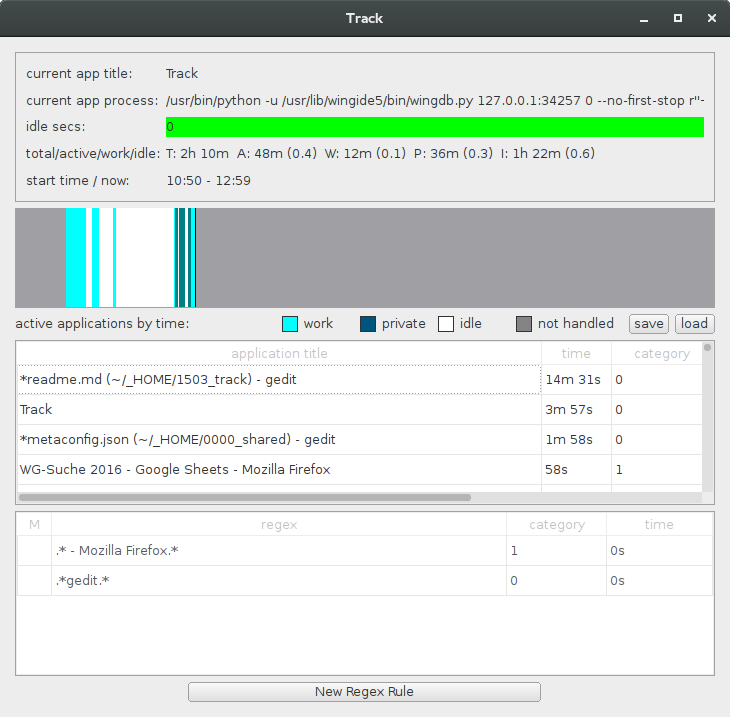Track logs your desktop active time and the applications you're using to create a time chart of your working day.
Unlike KTimeTracker or Hamster Track goes with as little user interaction as possible. Once configured you just (auto)start it and Track runs on it's own.
This is an early screenshot to give an idea of how Track works:

What it does:
- logs times your computer is active and which applications are in focus
- handles a list of rules which assign certain activities to private work
What it does not:
- manage an abstract task list you would have to maintain
- send any information to someone
When you should use Track:
- in case you're working mainly on a computer like software developers
- if you want to know how long you've been at work today
- if you want to know how much of your private time you spent on the computer
- if you want to waste your time with another self profiling tool
The current project state is (still! damn!) very early (see the schedule).
Very basic features are still missing so it might be wise to come back in a week or so. However it's totally save to use the tool and it's providing some interesting information already.
In order to get an idea how much of the day you spend for work and how much for private stuff (or how much you spend on project A or project B) track allows you to define special rules which assign each running program to a category.
Right now categories are still just numbers. In the future I plan to allow arbitrary categories (or category trees), e.g.:
- work
- project A
- project A
- private stuff ** test
- procrastinating
The technical approach is very simple: you define standard Python regex rules which are matched against the title of the active window.
For example - in a very simple world - it might be enough to define that browsing the internet using Firefox is private stuff (category 1) and everything else is work (category 0). In this case you would just define one rule:
regex=".*-Mozilla Firefox.*" -> category=1
This way every program whose title does not match .*-Mozilla Firefox.* would
be assigned to the default category 0 and all Firefox browser windows would
result in category 1 (which you might be private in your eyes).
- Linux (Windows coming soon)
- Python 2.7 (Python 3 coming soon)
- PyQt4
- python-libwnck
- libXScrnSaver
- python-psutil
Just clone the repository and run track.py.